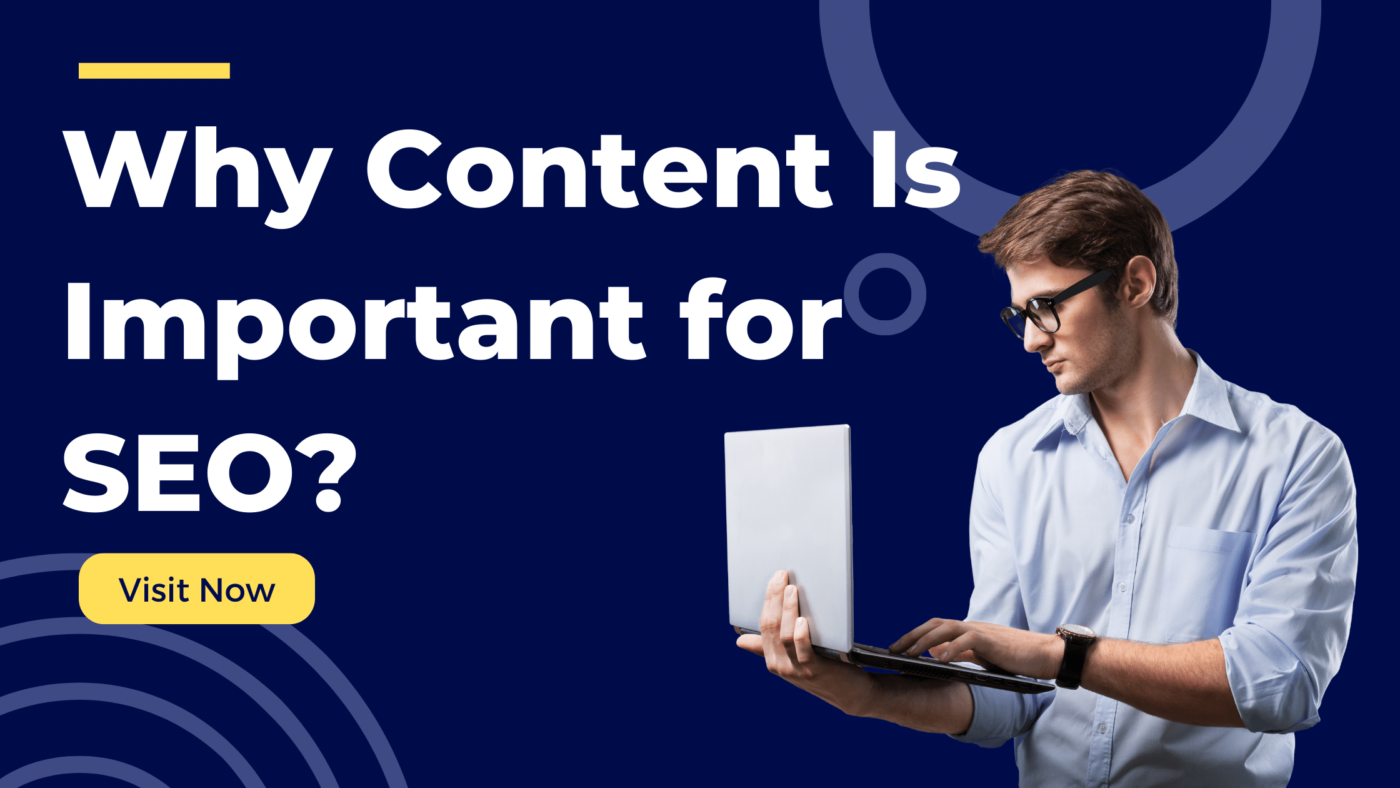SEO
Why Content Is Important for SEO?
| Outline of the Article |
|---|
| 1. Introduction |
| 2. Content and Search Engine Optimization |
| 2.1 Keywords and Relevance |
| 2.2 Quality and User Experience |
| 2.3 Link Building and Authority |
| 3. Content Types for SEO |
| 3.1 Webpage Content |
| 3.2 Blog Posts and Articles |
| 3.3 Infographics and Visual Content |
| 4. Content Optimization Techniques |
| 4.1 Keyword Research and Optimization |
| 4.2 On-Page SEO |
| 4.3 Internal and External Linking |
| 5. Importance of Fresh and Engaging Content |
| 6. Conclusion |
| 7. FAQs |
Why Content Is Important for SEO
Introduction
Content plays a vital role in search engine optimization (SEO) by helping websites rank higher in search engine results pages (SERPs). In this article, we will explore the importance of content for SEO and how it impacts website visibility and user experience.
Content and Search Engine Optimization
Content is the foundation of SEO, as it influences various factors that search engines consider when determining website rankings.
Keywords and Relevance
Well-crafted content enables the integration of relevant keywords, which helps search engines understand the purpose and topic of a webpage. Strategic keyword usage helps improve visibility for targeted search queries.
Quality and User Experience
High-quality content that provides valuable information, answers user queries, and engages the audience enhances user experience. Positive user signals, such as longer time on page and lower bounce rates, indicate content relevance and quality, positively impacting SEO.
Link Building and Authority
Quality content attracts natural links from other websites, indicating its value and authority. Backlinks are an important ranking factor, and creating content that earns links can significantly improve a website’s SEO performance.
Content Types for SEO
Different types of content serve different purposes in SEO strategies.
Webpage Content
Webpage content includes the main content on static pages such as the homepage, about page, and product or service descriptions. Well-optimized webpage content is essential for conveying relevant information, incorporating target keywords, and engaging users.
Blog Posts and Articles
Blog posts and articles allow websites to regularly publish fresh and informative content. They provide opportunities to target long-tail keywords, address user queries, and establish thought leadership. Blogs also encourage user engagement and social sharing, contributing to SEO success.
Infographics and Visual Content
Infographics, images, videos, and other visual content can enhance the user experience, increase time on page, and attract social shares. Visual content aids in conveying complex information effectively, making it more shareable and link-worthy.
Content Optimization Techniques
To maximize the SEO impact of content, it’s important to optimize it effectively.
Keyword Research and Optimization
Thorough keyword research helps identify relevant and high-traffic keywords to target in content. Keyword optimization involves strategically incorporating these keywords in titles, headings, meta tags, and throughout the content while maintaining natural language flow.
On-Page SEO
On-page SEO techniques include optimizing meta tags, headings, URLs, and image alt tags. It also involves structuring content with appropriate headings and subheadings, utilizing internal linking, and ensuring proper formatting for readability.
Internal and External Linking
Strategic internal linking within content helps search engines understand the website’s structure and hierarchy. External linking to authoritative sources enhances credibility and signals to search engines the quality and relevance of the content.
Importance of Fresh and Engaging Content
Regularly updating and publishing fresh, engaging content is vital for SEO success.
Fresh content demonstrates website activity, attracts search engine crawlers, and encourages frequent indexing. Engaging content captivates users, encourages repeat visits, and increases the likelihood of social sharing and backlinking.
Conclusion
Content is a fundamental element of SEO that significantly impacts website visibility, user experience, and rankings. By creating high-quality, relevant, and optimized content, websites can improve their SEO performance, attract organic traffic, and establish their authority in their respective industries.
FAQs
Q1: Is written content the only important type of content for SEO?
A1: No, while written content is crucial, other content types such as images, videos, infographics, and interactive elements also contribute to SEO success. They enhance user experience, encourage engagement, and attract links and social shares.
Q2: How often should I publish new content for SEO purposes?
A2: The frequency of content publishing depends on various factors such as your industry, audience, and resources. It’s recommended to have a consistent content publishing schedule, whether it’s daily, weekly, or monthly, to keep your website fresh and engage your audience.
Q3: Can duplicate content harm SEO rankings?
A3: Yes, duplicate content can negatively impact SEO rankings. Search engines strive to provide unique and valuable content to users, so duplicate or plagiarized content may result in lower rankings or even penalties. It’s essential to create original and unique content.
Q4: How can I measure the effectiveness of my content for SEO?
A4: You can measure the effectiveness of your content by monitoring metrics such as organic traffic, time on page, bounce rates, social shares, and backlinks. Analyzing these metrics will help you understand the impact of your content on SEO and make necessary improvements.
Q5: Is content more important than technical SEO?
A5: Both content and technical SEO are essential for overall SEO success. Content engages users and improves relevance, while technical SEO ensures proper website structure, crawlability, and indexing. A balanced approach to both is crucial for optimal results.

